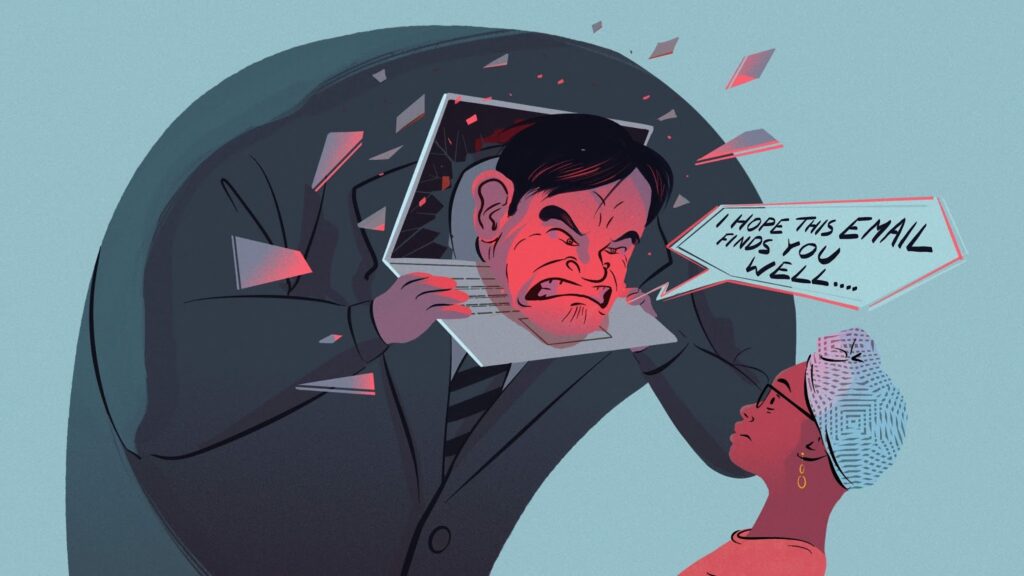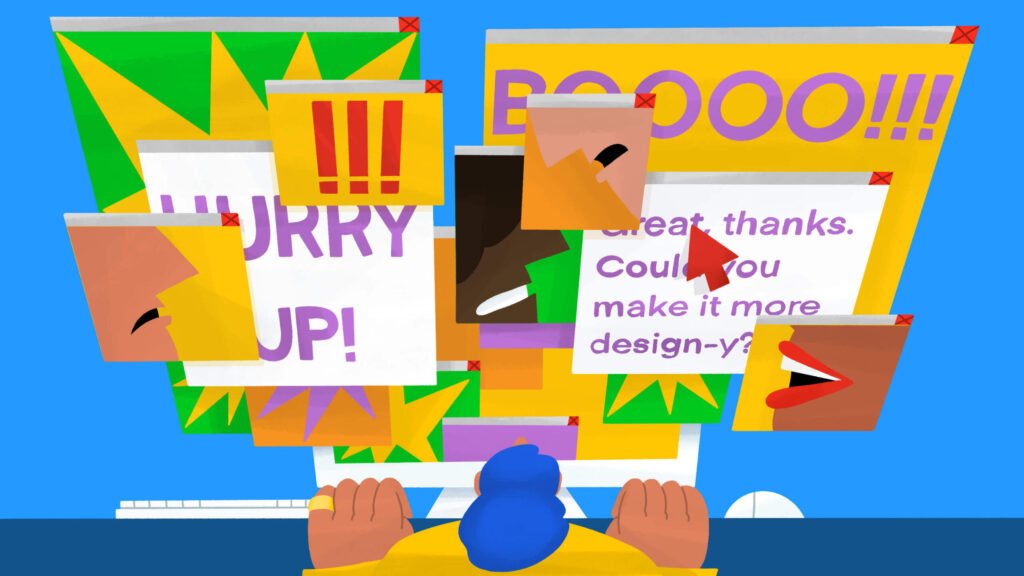As your freelance career progresses and if you see fairly consistent success, you may start to think about scaling—growing your business. For some freelancers, this decision is made without them even noticing, as they bring in more support for the projects they’re selling and become an ‘overnight agency.’ For others, it’s a more intentional step towards growth. At what point do you stop freelancing and become an agency? How do you know when you’re ready to scale? How much profit is needed to scale? Scaling a business looks different for everyone, so let’s look at what it means to scale, and how to do it the smart way.
In this article:
- What does scaling a business mean?
- The hidden costs of scaling
- When do you know it’s time to scale
- How do you scale a freelance business?
- Other ways to scale
But first, what does ‘scaling a business’ mean?
Scaling is another word for business growth, and it usually refers to more than just increasing income. Adding employees, revenue streams and service areas are all ways to scale. Most freelancers who begin scaling their business tend to become an agency—for example, a graphic designer hires other designers and potentially copywriters or marketers to run a brand strategy agency; a videographer hires an editor, an audio engineer and a creative producer to become a production company; a social media marketer brings in a few extra writers or associates to assist with scheduling and strategy.
The hidden costs of scaling
Many freelancers are told that scaling is the path to profitability, but that isn’t necessarily the case. There are several factors that make a scaled business much more difficult than freelancing, and increased profit isn’t always a given. Consider the added costs of paying talented people to support you—the better they are, the more they cost. There are also other costs you might not have factored in, including:
- Tax changes: an increase in revenue may change your tax status
- Accounting & Legal fees: you’ll need experts in both of these areas and they are not cheap
- Administrative support: many freelancers overlook this expense as they’re used to running everything on their own, but a scaled business has complex administrative needs that are best served by a professional
- Software subscriptions: you may pay for 1 seat for Figma for example, but your whole team will need access. There also may be tools you were able to use as a team of one for free, but that incur costs when adding others to the team
- Bank fees: if you’re paying contractors overseas, currency conversion fees add up. Some business bank accounts also charge monthly access fees.
When do you know it’s time to scale?
There is no ideal scaling point, but there are a few milestones that indicate you might be ready to start building your agency or business. If you are working consistently and finding you might even have to turn work away because there is more interest than availability, you’re at a fantastic scale point. Especially if you’ve recently raised your rates and haven’t lost any of your existing clients.
If you have a few clients interested in retainers or longer-term relationships, this means your revenue is becoming more predictable. Predictable revenue means you can absolutely consider scaling wisely, as you have a relatively clear understanding of what your finances look like a few months in advance.
If you find that more than half of your time is spent on administrative tasks or work that is outside of your speciality, it may be time to consider scaling as well. For example, if you are a marketing strategist but you’re spending more time on bookkeeping, time tracking, client communications and scheduling social media posts than you are doing the actual marketing strategy, this means your client is overpaying for admin (while possibly underpaying for strategy), and you’re probably not able to deliver your best work. Let’s do some quick math on that.
As a business owner, your time is the most valuable resource for your company. You are the most expensive asset. That means an hour spent sending invoices costs as much as an hour spent doing strategy, if you’re doing both. So let’s say your hourly rate is £100. £100 per hour for a marketing strategy is a very fair price. But would you ever pay £100 per hour for scheduling social media posts? It’s likely you can find someone who can perform that task for you for between £20-30 per hour, which means you are now free to spend an extra hour earning £100 working on strategy.
How do you scale a freelance business?
When you’re ready to take the next step, here is our process for smart scaling. While we support big risks and brave choices, we also think it’s important to make sure that any decisions you make can be made slowly and support the natural progression into the next step. There are people who will apply for a loan or tap into a savings account to fund a scaling attempt, but we’d caution you to grow slowly and naturally instead for a stronger, more solid foundation.
- Clean up your admin
The first step is to straighten out your administrative work. Find the right tools to manage projects, emails and meetings; make sure your banking and accounting are prepared for receiving payments and paying people, and that your client contract covers everything. You’ll also need a contract for freelancers or anyone you hire, and an NDA as well. - Create processes
If you have a budget already, it may be a good idea to have someone help to operationalize (that is, create processes) for your business. Processes help ensure that each client receives a consistent experience, and makes projects easier to manage at scale. Onboarding new clients, a sales process, invoicing and payment process, communication processes, project management—all of these are processes you may want to establish to make things run smoothly as you scale. - Know your niche & positioning
One of the best ways to make your sales and marketing (as well as your services) more simple and effective is to be extremely clear and specific on exactly what you do, and exactly who you do it for. Focussing in on the things you can deliver best and eliminating extra services will mean your clients get you at your best, and you’re not struggling to learn on the go just to keep up. - Build the team
Most early scaling businesses will engage a few freelancers rather than full time hires at first (this is known as ‘an associate model’, meaning that the people working with you are ‘associates’ rather than employees). This is a very smart way to scale, as you’re not liable for salaries if the business is not making money. You’ll want to work with people who you trust, so building these relationships before you need them is your best path towards scaling. Of course, if your revenue is more predictable and the business is already profitable (for example, you have a few client retainers) it may be in your best interest to hire full or part-time employees. The overall cost is less than freelancers, but it needs to make sense financially based on the future workload. A good accountant can help you with this decision. - Manage continuous sales
Once you launch your agency or scaled business, it’s not as simple as turning on the tap and watching new business pour in. As you scale, you’ll most likely delegate a great deal of the actual deliverables to the team, meaning your time will need to be spent working on the business. You’ll now be responsible for bringing in more sales to support your growing team and rising costs, but don’t let that pressure intimidate you. Sales and marketing are ongoing, year-round, non-stop activities, and not just things you focus on when work dries up. Keep a consistent marketing strategy and don’t be tempted to pause when things are busy. Good sales is a long game, and requires long-term effort to be successful. - Plan ahead
Think about the future of your business. What does it look like in 6 months, 2 years, 5 years? Where do you want to be? And what steps must you take to get there? Aside from vision setting, it’s also important to plan contingencies. What happens if you lose your biggest client? What happens if you triple your workload? What happens if your entire team quits? Have plans ready to go for scenarios like these, and you’ll never be caught short.
Other ways to scale
It’s important to understand that all freelance paths look different, and what works for one person won’t necessarily work for another. There are also plenty of successful freelancers who stay solo—just because you’re great at what you do doesn’t mean you want to manage a team or build a large company. There are other ways to scale besides hiring a team and expanding your business.
You could change clients, for example if your niche is currently dog groomers, you could shift your focus to clients one level above them (example: salon owners, pet services or brands) for increased budgets using your existing industry knowledge. You could add additional high-ticket offers to your existing services, like consulting, workshops or private coaching sessions. Scaling doesn’t have to mean becoming an agency.




